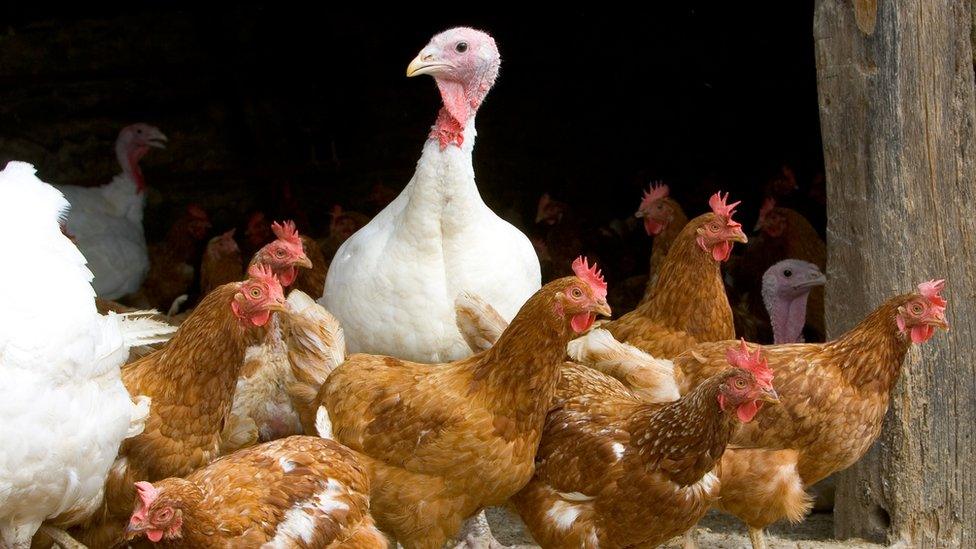First case of avian flu confirmed on Isle of Man
- Published

The government said the deaths were confirmed at a property in Sulby on Friday
The first case of avian flu has been confirmed in the Isle of Man.
A Manx government statement said: "It is the first time the H5N1 virus, which is highly contagious amongst birds... has been recorded on the island."
A bird keeper in Sulby found 11 of his geese dead near a pond on his property on Friday.
The Department of Environment, Food and Agriculture confirmed the virus caused the deaths and has established a protection zone around the site.
Within the 1km (0.6 miles) radius keepers must house their birds and must not move them off their property, the government said.
An all-island surveillance zone has also been introduced and all bird keepers are advised to also house their poultry, practise good biosecurity and disinfect boots and equipment regularly.
'Follow the advice'
Chief veterinary officer Amy Beckett said: "Due to this positive case we are asking all owners on island to house their flocks and asking the public not to touch ill or dead birds as a precaution.
"Although this virus can spread quickly amongst birds, the risk to the public is very low and well-cooked eggs and poultry remain safe to eat."
Jacqui Dunn. head of health protection with Public Health, said: "This is an infectious virus which spreads among birds, but it is very unusual for humans to be affected.
"However, we are issuing the precautionary advice as it is possible for humans to catch the virus through close contact with an infected bird, dead or alive.
"We do want to reassure residents that the risk of their catching the disease is low and ask that people follow the advice."

Why not follow BBC North West on Facebook, external, Twitter, external and Instagram, external? You can also send story ideas to northwest.newsonline@bbc.co.uk
- Published6 January 2022
